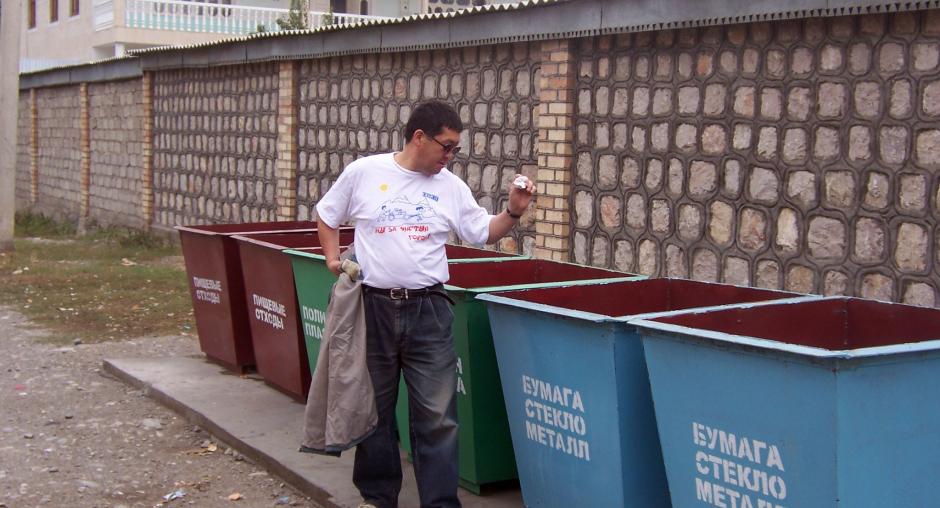Newsroom
OSCE Field Office helps improve waste management in Osh
OSH 14 November 2006

(OSCE)Improving waste management in the Kyrgyz city of Osh was the aim of an OSCE-supported project implemented in September-November 2006. (OSCE) Photo details
OSH, Kyrgyzstan, 14 November 2006 - Improving waste management in the city of Osh was the aim of an OSCE-supported project successfully completed today.
It was implemented in the last two months by the OSCE Field Office in Osh, the Osh Territorial Administration for Environmental Protection and Forestry, the City Administration and the NGO Baktynur Osh.
"Along with financial support, we also developed a campaign to raise awareness about the waste problem and remind city residents to fulfill their role in keeping the city clean," said Jerome Bouyjou, the Head of the Field Office.
"Awareness-raising workshops were organized for residents and school children, billboards were set up in the city, and educational films screened on local TV stations. We have also offered support to the city committee that deals with strategic planning for self-sustained maintenance and future improvements."
The project helped create 8 new waste collection places and install 40 new containers in three colours for waste separation. Over 2500 bins for separating waste with informative booklets to target area residents in 1274 apartments were distributed.
Jumadyl Isakov, the Mayor of the Osh City Administration, thanked the OSCE Field Office for helping solve one of the city's most important and complicated problems, adding: "We now have a model for better waste management in the future. Now that the attitude of the residents has begun to change, we need to replicate this practice to other areas of the city. The city administration is ready to contribute 50 per cent of resources to the next project."
It was implemented in the last two months by the OSCE Field Office in Osh, the Osh Territorial Administration for Environmental Protection and Forestry, the City Administration and the NGO Baktynur Osh.
"Along with financial support, we also developed a campaign to raise awareness about the waste problem and remind city residents to fulfill their role in keeping the city clean," said Jerome Bouyjou, the Head of the Field Office.
"Awareness-raising workshops were organized for residents and school children, billboards were set up in the city, and educational films screened on local TV stations. We have also offered support to the city committee that deals with strategic planning for self-sustained maintenance and future improvements."
The project helped create 8 new waste collection places and install 40 new containers in three colours for waste separation. Over 2500 bins for separating waste with informative booklets to target area residents in 1274 apartments were distributed.
Jumadyl Isakov, the Mayor of the Osh City Administration, thanked the OSCE Field Office for helping solve one of the city's most important and complicated problems, adding: "We now have a model for better waste management in the future. Now that the attitude of the residents has begun to change, we need to replicate this practice to other areas of the city. The city administration is ready to contribute 50 per cent of resources to the next project."
